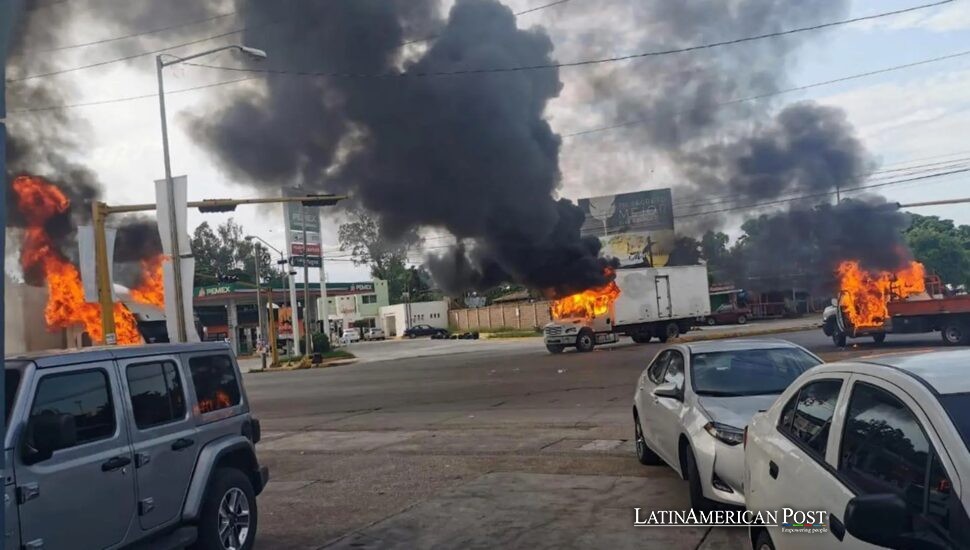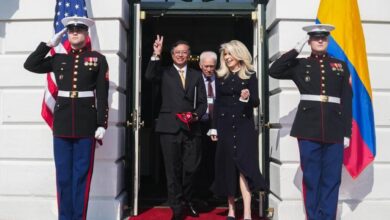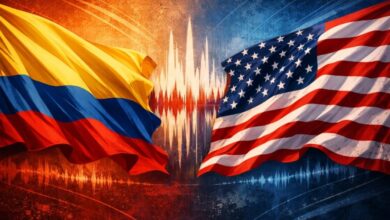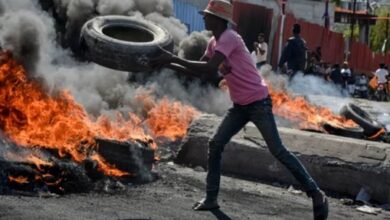Trump Seeks Labeling Latin American Cartels as Terrorists

In a decisive step, the US government labeled multiple Latin American cartels plus criminal networks as terrorist groups. The decision seeks to stop the groups’ activities and improve safety, affecting millions throughout the region.
A New Label for Old Foes
The security situation in Latin America has shifted after the US, under President Donald Trump, labeled major criminal groups as foreign terrorist organizations. This new approach targets Mexican cartels plus other cross-border criminal groups to limit their power. The decision affects economies, societies, and many people who live near these violent groups.
A cold Monday morning in the Oval Office started a new chapter in the battle against Latin American crime. President Trump labeled groups like Venezuela’s Tren de Aragua plus El Salvador’s MS-13 as foreign terrorist organizations. The decision puts them on the same level as ISIS along with Al-Qaeda. A new designation now includes heavy penalties plus prohibits American citizens and companies from involvement with these groups.
The President spoke to the nation right after he put his signature on the document. He pointed out that this action might create friction with Mexico. “Mexico probably won’t like this,” he commented, showing his team’s commitment to fighting these crime syndicates. When pressed by reporters about whether this would lead to direct actions against the cartels within Mexican borders, Trump offered a cryptic response: “It could happen; things more strange have happened.” This ambiguity has left many analysts and citizens speculating about the future actions the US might take against these powerful groups.
Lives Shattered by Cartel Violence
The human toll of cartel brutality in Latin America reaches shocking levels. Cartels destroy families, plus communities live in fear as innocent people die each day. Maria Lopez, who lives in a small northern Mexican town, told her terrifying story. “We hear gunshots along with screams every day. The cartel kidnapped my brother last month. “We really don’t know why, but now we fear for our lives,” she said tremblingly.
The designation of these cartels as terror groups gives Maria, along with many others, a ray of hope. This signals a shift in how nations deal with plus tackle these groups. But the impact on daily life remains uncertain. A stricter approach by US forces might trigger more conflict as cartels protect their territory.
Local shop owner Enrique Ramirez voiced his worries about money matters. “These cartels run lots of our shops through threats as well as force. If the US acts tougher, they might go deeper underground, which makes business harder for us,” he said. The mix of crime groups with local money creates a challenging puzzle that must be carefully handled.
Economic Ripples Across Borders
The executive order creates significant economic effects in Latin America and Mexico, which serve as key areas for cartel power. The US plans to label these groups as terrorist bodies to break up their money flow and restrict their local and global actions. The proposed steps may block assets, establish money rules, and force businesses to end connections with those groups.
Money matters face several difficulties. Mexican businesses in production and agriculture depend on US trade for survival. Strict limits could harm supply chains, increase costs, and cause product scarcity. A top Mexican economic expert, Ricardo Torres, notes, “We need to shield legitimate companies and our total economy as we combat crime groups.”
The US economy could also suffer. Mexican companies remain key parts of US supply chains and regular operations. A severe disruption might result in higher prices for US consumers and added expenses for American companies. Leaders of both countries face a very complex challenge in battling crime rings while maintaining market stability.
Strategies for Combating Terrorism and Crime
The new classification of Latin American cartels as terrorist groups fits into a broader plan to fight international crime plus improve safety. The US now applies its legal and financial tools to weaken these groups by blocking access to money and resources.
Alexander Drickersen, the head of EAD Global Consulting and a former FBI agent focused on international crime, highlighted the seriousness of the recent classification. “People who assist these groups now risk major charges. The penalties remain severe even if businesses or individuals lack knowledge of their connections,” he told EFE. These laws block crime groups’ money flows plus limit their criminal activities.
The US partners with Latin American nations to find and break up these networks. A mix of shared intelligence operations and coordinated actions to stop smuggling routes and money paths will hurt these groups. Local programs that offer young people good options instead of cartel jobs might cut their future numbers.
However, the effectiveness of these strategies will depend on several factors, including the level of cooperation from Latin American governments, the resilience of the cartels, and the ability to adapt to evolving tactics used by these criminal groups. Ensuring that law enforcement agencies are adequately trained and equipped to handle these challenges will be essential for the success of this initiative.
Balancing Security and Diplomacy
As the US steps up actions to label plus fight Latin American cartels as terror groups, officials must balance challenging security steps with good relations. Better links with Mexico and other nations matter significantly to keep such efforts stable and avoid problems.
The diplomatic work will help fix the fundamental problems behind cartel violence—poor economies, bribes, and low education levels. A joint effort by the US and Latin American countries will lead to complete plans that hit criminal groups but also let honest businesses grow and help rebuild towns.
Working on drug problems plus aid for cartel victims reduces these groups’ impact on society. Treatment centers, mental care, and local support networks create a complete plan that cuts cartel power. The process needs thoughtful planning and meticulous execution to succeed.
A Critical Juncture for Latin American Security
The designation of Latin American cartels as foreign terrorist groups signals a significant shift in the fight against crime in the region. This step serves as a bold statement against these groups’ influence, yet its success depends on the execution of proper strategies that mix security with economic plus diplomatic factors.
For Latin Americans – especially those who live in areas struck by cartel violence – this change brings both hope and doubt. A takedown of these crime networks could result in safer areas and better economies, but the shift needs careful plans and constant work from all parties.
The current steps shape Latin American safety and the future of countless citizens. A reasonable policy mix must protect the fight against crime and terrorism while also protecting human life and economic stability.
Also Read: Continuing Impact Fifty Years After Latin America’s Deadliest High-Rise Fire
The path forward presents obstacles, but joint action and dedication can help create a safer and more prosperous future for Latin America. The spirit of its citizens, combined with focused global support, makes it possible to beat these crime groups. This opens up a path to real peace and safety across the region.





